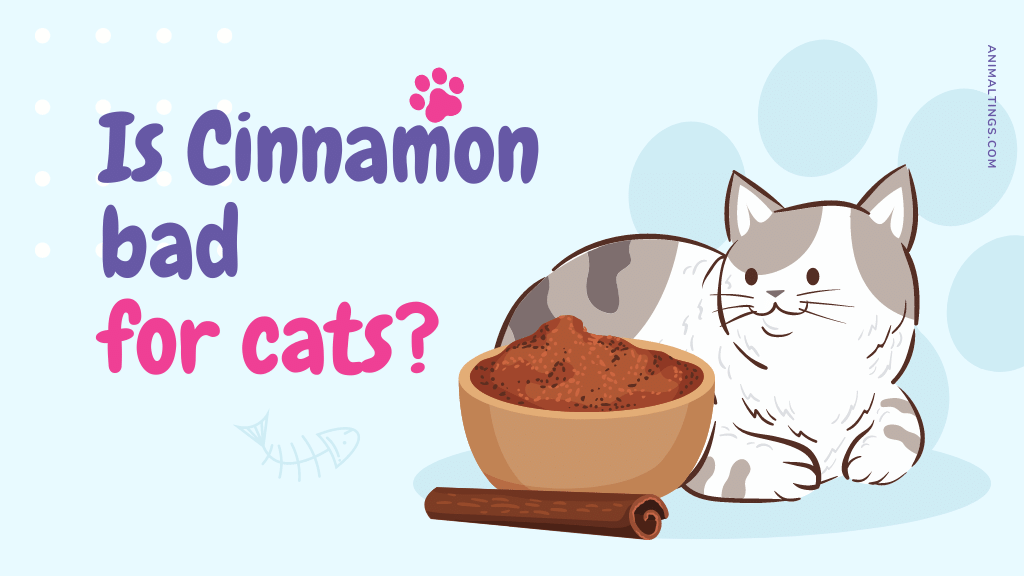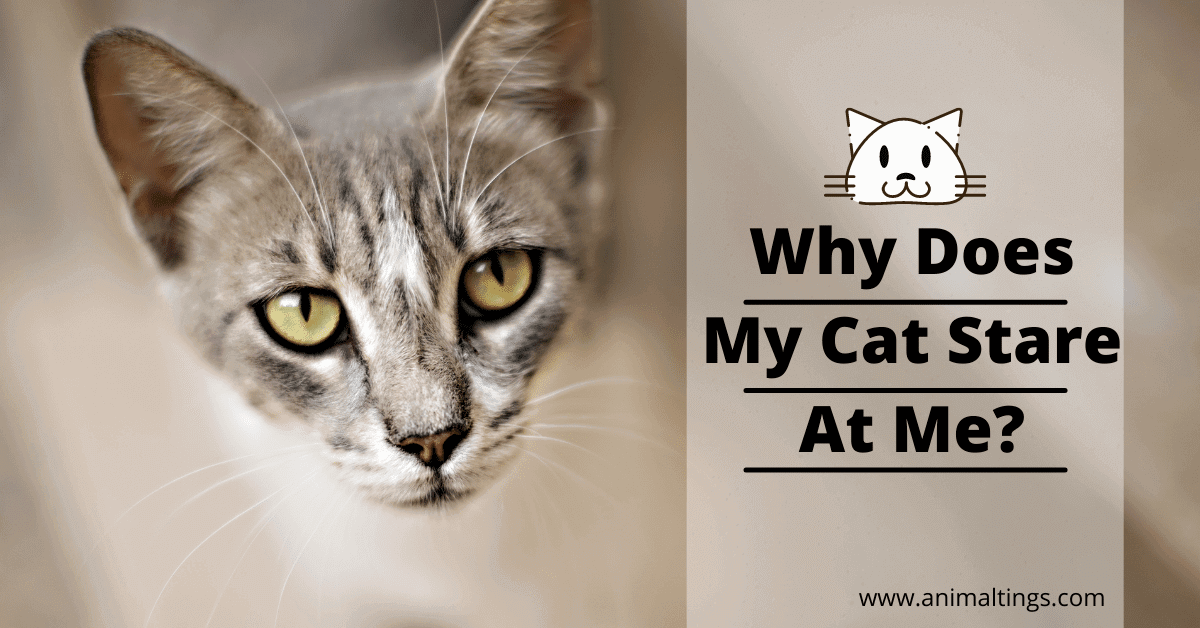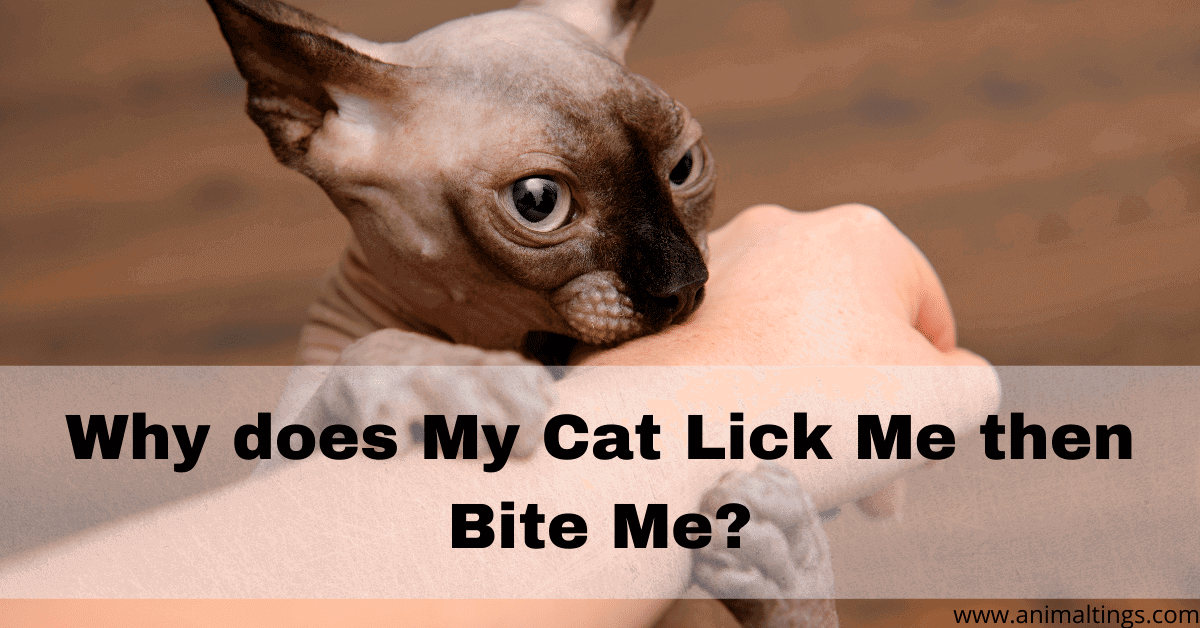Is cinnamon bad for cats? Cinnamon is theoretically non-toxic to cats, but if your cat exposes to the higher amounts commonly found in essential oils, it can become poisonous at certain levels. Cinnamon poisoning can be particularly harmful to cats for a variety of reasons. Cats do not have some liver enzymes necessary to break down cinnamon compounds, so whether your pet
has exposed to significant chemical levels in a short period or low levels over an extended period, the compounds can accumulate. Because cats have thin skin, essential oils containing cinnamon compounds can easily absorb by their delicate skin. So, they are more susceptible to the harmful effects of cinnamon.
Cinnamon can cause rashes and allergic reactions in cats and other animals whether applied topically or orally. Cinnamon or its aroma can provoke an allergic reaction in cats due to their sensitive skin and keener sense of smell than in humans. Symptoms of an allergic reaction or poisoning to cinnamon should prompt you to seek emergency medical attention for your cat if exposed to cinnamon.
Cinnamon, also known as Cinnamomum, is widely used in human food and household products. Cinnamon is classified as either cassia or Ceylon, depending on where it comes from. Compared to Ceylon cinnamon, which is more typically found in the United States, cassia cinnamon has more significant concentrations of the chemical coumarin. Coumarin is a rodenticide (rat poison) that causes liver failure and hemorrhaging in rodents when administered at high concentrations. A blood thinner or a diabetes treatment, cinnamon is sometimes used in humans as a natural medicine to decrease blood sugar.
Table of Contents
Cat Cinnamon Allergy and Toxicology
An allergic or toxic reaction to cinnamon’s chemical components can cause a wide range of symptoms. The signs and symptoms are dependent on the amount and type of exposure.
- Asthma is caused by contact with the skin or mouth.
- Irritation \Rash \Redness \Burns
- Inhalation response in the respiratory system:
- Coughing
- Wheezing
- Inability to breathe due to bronchospasm
Ingestion or absorption of cinnamon components might result in the following symptoms:
- Vomiting \Diarrhea
- Blood sugar levels are too low.
- Changes in the heart’s electrical activity
- A condition that causes the blood to become dilated
Regular, everyday use of powdered cinnamon is unlikely to result in toxicity. Large quantities of powder or the inhalation of powder would be required to trigger a response. Cinnamon essential oil, which contains a considerably more significant concentration of chemicals toxic to cats, is becoming more popular among homes due to the growing popularity of necessary oil use.
Cinnamon poisoning in cats can occur in the following ways:
- Savoring the flavor of a cinnamon tree houseplant
- She was chewing on a cinnamon stick that was left in a cup.
- Eating cinnamon-spiced human food.
- Licking or sucking on potpourri or other cinnamon-scented household items
- It’s a result of the usage of cinnamon oil as a diffuser that your cat inhales.
- Avoid caressing or touching your cat after rubbing cinnamon oil on your hands.
READ ALSO: Why Does My Cat Stare At Me?
Why Cinnamon is bad for cats?

READ ALSO: Why Is My Cat So Small?
Cinnamon is sometimes used to deter cats and other pests from the garden or house, and cats might expose to excessive amounts of cinnamon as a result.
Natural cures for diabetes have long been associated with cinnamon (as it lowers blood sugar). So, pet owners who are trying to treat their cat’s diabetes may end up dosing their cat with dangerous doses of cinnamon. You should not feed cats on purpose.
It’s crucial to remember:
Glucuronyl transferase, a liver enzyme that breaks down cinnamon compounds, is absent in cats. Therefore they are more susceptible to hazardous accumulation of cinnamon chemicals in their system.
Burning of the skin and respiratory system may occur because cinnamon contains phenol, which is carbolic acid. In cats, this type of behavior is greatly heightened.
Is Cinnamon bad for cats? Diagnosis and Treatment
Pet owners who can accurately explain any cinnamon exposure their pets have had will play a critical role in determining if they are suffering from cinnamon poisoning or an allergic reaction. For the sake of your cat, your veterinarian will do a thorough physical examination and inquire about your pet’s medical history. If your pet is showing signs of organ failure, your veterinarian may do tests such as blood and urinalysis to determine how well the organs are working. Clinical Management of Cats With Cinnamon Allergy or Toxicity
Treating your pet’s sensitivity to cinnamon depends on how severe their symptoms are. The area where an allergic reaction has occurred should be cleaned with a mild detergent and water. The eyes should thoroughly rinse to remove the irritating substance if irritated. Cinnamon exposure has been linked to increased allergic reactions in other animals. Therefore you should generally avoid giving your cat steroids.
Your pet’s prognosis will depend on how much harm has been done to its organ systems by poisoning. As the toxin exits your cat’s system, you will need to provide supportive care and treatment to alleviate any symptoms your pet may be experiencing. If an organ gets damaged, the prognosis is bleak, and your vet will undertake all therapeutic care that is accessible and acceptable to restore organ function. When pets are poisoned with excessive levels of coumarin, a compound found in cinnamon, vitamin K utilizes as an antidote. Vitamin K therapy may benefit if coumarin poisoning symptoms (hemorrhaging due to blood-thinning) are
present.
Airway management and oxygen therapy may utilize if your pet is experiencing respiratory distress due to inhalation or ingestion of cinnamon.
READ ALSO: Does lavender poison cats?
Do cats eat cinnamon?

Yes, cats can eat cinnamon sticks, powder, or essential oil and it isn’t poisonous to cats. But exposure to a large amount can cause multiple problems. So, if someone asks, do cats like cinnamon? The answer is yes, but a little amount as the essential oils are concentrated. Further, they should not eat cinnamon rolls as they have raisins that can be toxic to felines.
As the cats eat cinnamon, some can ask do cats like cinnamon? Usually, they do not like cinnamon because of its smell. The strong aroma cats do not like cinnamon and it is a good cat repellent.
RELATED:
Allergy or Toxicity to Cinnamon in Cats Can Be Treated
When it comes to your pet’s rehabilitation, the level of exposure and any organ damage that has happened are critical factors. In most cases, removing cinnamon from your cat’s environment will alleviate the problem of an allergic reaction. Before attempting to cure your cat’s health problems at home using essential oils, it,s always advisable to see your veterinarian. Using
essential oils to treat your cat’s health problems at home should only be done after consulting your veterinarian. Your veterinarian will prescribe rest, medication, and special food to help your pet recover from poisoning and ease its symptoms.
READ ALSO: Can dogs eat prosciutto?
Conclusion
Actually, is cinnamon bad for cats? Usually cinnamon is not toxic to cats, dogs, or horses. A small amount of cinnamon does not cause any allergy or toxicity to cats. But it can toxic for a certain level. As there are fewer evidence-based benefits of cinnamon to cats, better to avoid it. Especially, do not give cinnamon for therapeutic reasons and also avoid from pregnancy and nursing kitties.




